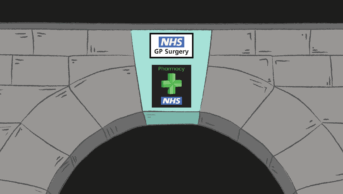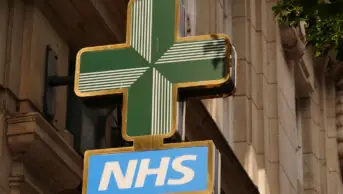
Shutterstock.com
Nearly 400,000 people in England attended a GP or urgent care service because their pharmacy could not fill their NHS prescription in December 2024, according to an analysis by the Liberal Democrats.
The results of the analysis, published on 19 February 2025, show that an estimated 382,000 adults looked elsewhere for their prescriptions between 10 December 2024 and 1 January 2025, as their usual pharmacy was “unable” to complete their request.
Additionally, the analysis revealed that a further 269,000 adults took “no further action” after their usual pharmacy could not dispense their prescription.
An estimated total of 3 million people reported experiencing an issue when using prescription services in the same period. Of those 3 million people, more than one in ten people (336,000) waited more than a week to resolve their delays in accessing their prescription. Meanwhile, 426,000 people resorted to trying multiple pharmacies.
The Liberal Democrats based the results on an analysis of an Office for National Statistics survey, which gauged the experiences of NHS healthcare services in England.
In response to her party’s findings, Jess Brown-Fuller MP, hospitals and primary care spokesperson for the Liberal Democrats, said: “Everywhere you turn, our frontline health services are at a breaking point with devastating consequences for patients.
“We have heard from countless people struggling to access their prescriptions when they need them, with many turning to A&E or their GP — or even going without the medicine they need to get through their daily lives. All this piles pressure on our hospitals and primary care services that are already at the brink.
“The government must take steps to ensure that patients can access the medication they desperately need and struggling pharmacies can keep their doors open,” she added.
The Liberal Democrats also cited medicines purchasing costs as a major driver for cost increases for pharmacies, with many pharmacies already struggling to keep afloat.
Janet Morrison, chief executive of Community Pharmacy England, commented: “It is shocking, but sadly not surprising, to hear how many people and parts of the health service are being affected by medicine supply issues. We know the horrendous impact that managing supply issues has on pharmacy teams and businesses day in and day out, and this analysis now shows the direct impact it is having in piling more pressure on hospitals and general practice, too.
“Pharmacy teams work extremely hard to try and source vital medicines for their patients, but they are at the mercy of an unpredictable medicines market and regularly find themselves supplying medicines at a financial loss. Despite pharmacies’ best efforts, this is inevitably also adding strain on other parts of the NHS. We need to see an urgent stabilisation of the medicines supply chain to ease these pressures for patients, pharmacies and the wider NHS.”
Similarly, the National Pharmacy Association (NPA) has warned that thousands of pharmacies face a financial ‘cliff edge’ in April 2025, owing to increases in national insurance and the national living wage.
In an update, published on 24 February 2025, the NPA stressed that England’s pharmacies face £250m in unplanned costs, as well as the risk of being forced to cut back their services, or, in some cases, consider closing altogether, unless the government urgently intervenes.
“Many pharmacies are reporting bills of tens of thousands of pounds, which are unfunded, on top of managing the impact of real-terms cuts of 40% [in] the past decade, which has forced record numbers to close already,” the NPA said.
A proportion of these pharmacies will also face an estimated 140% hike in their business rates, it added.
Nick Kaye, chair of the NPA, said: “At the moment, pharmacies still have no certainty if any of these [national insurance, national living wage and business rates] costs will be met by the government, despite assurances for other parts of the health system, including our GP colleagues.
“Pharmacies have shut in record numbers and those left are currently hanging on by their fingernails. They are growing increasingly concerned about their future. Without imminent funding certainty from the government, we may be left with little choice but to recommend collective action to ensure pharmacies can survive for the patients who rely on them.”
In January 2025, the NPA warned that it would be left with “little choice” but to advise pharmacies to take collective action over delays to pharmacy contract negotiations, after pharmacy owners voted in favour of taking action in a ballot in November 2024.
The NPA also revealed in January 2025 that, on average, four pharmacies closed each week in England in 2024.
On 28 January 2025, the government announced that it had started consultations on the ‘Community pharmacy contractual framework’ for 2024/2025 and 2025/2026.


